The Society of Physician Entrepreneurs with Arlen Meyers
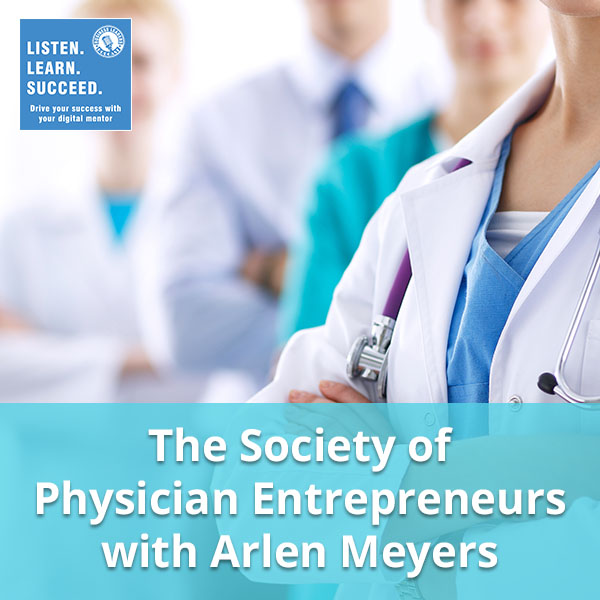
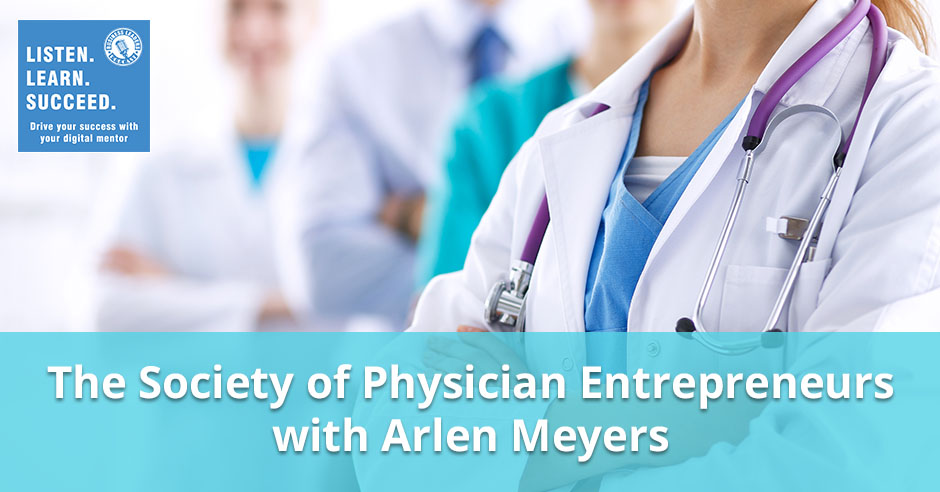
A lot of people in science, engineering, and health professions have a good idea but they don’t know what to do with it. Maybe they had two or three good ideas that just went down the drain. How do you translate your idea into something that creates value for a patient? According to Arlen Meyers, the Society of Physician Entrepreneurs is a global biomedical and clinical innovation and entrepreneurship network whose mission is to help members get their ideas to patients. Arlen is the president and CEO of the said society. He’s also a radio co-host in Colorado Business Roundtable, and a professor emeritus of otolaryngology, dentistry, and engineering at the University of Colorado School of Medicine. He discusses in detail what the Society of Physician Entrepreneurs is all about, and touches on data and machine learning, physician entrepreneurship, digital health technology, and the experiences that helped him progress down the road.
The Society of Physician Entrepreneurs with Arlen Meyers
We’re extremely fortunate to have Arlen Meyers. He’s the President and CEO of the Society of Physicians Entrepreneurs. He’s also a radio co-host in Colorado Business Roundtable. He’s a professor emeritus of Otolaryngology, Dentistry and Engineering at the University of Colorado School of Medicine. Arlen, thank you for taking your time to be here.
Thanks for having me.
Tell me a little bit about what you’re doing with the Society of Physicians and who you serve.
The Society of Physicians Entrepreneurs is a global biomedical and clinical innovation and entrepreneurship network. Our mission is to help our members, which are fairly eclectic, to get their ideas to patients. Everyone I know in science, engineering, and health professions have a good idea but they don’t know what to do with it. Typically, it goes down the drain in the shower. Maybe you had two or three good ideas and they went down the drain. How do you translate the idea into something that creates value for a patient? That process, which we refer to in sick care have a $3.2 trillion healthcare spending, which is masquerading as a sick care system. 90% of the budget goes toward taking care of sick people. I’m a recovery Ear, Nose and Throat surgeon. I spent my career at the Anschutz Medical Campus in the University of Colorado School of Medicine teaching people how to do surgery on that stuff.
I’ve had a fairly complicated medical career. I didn’t like the idea of how this was playing out in terms of innovation. I felt that for a very long time and to a certain extent now, the two most important components of the innovation supply chain, the doctor and the patient, were ignored. It was the biomedical industrial complex that came up with bright shiny objects and said, “These are great. Why don’t you buy them for this ridiculous cost?” Now, we wind up with high-cost, low-value stuff. Why? Because of a number of reasons, but one of them is because we didn’t engage end users early enough in what is described as design thinking, lean startup methodology, consumer engagement and customer discovery. I didn’t like that, I thought that was stupid. I decided with some other folks to do something about it.
When did you decide?
This is something that I had been involved with for a long time. I graduated from business school in 1984. In those days, having someone with a white coat sitting next to pinstripes was rare. I’ve always had this bug about the business of science and medicine. Part of it comes from my background. My dad was a pharmacist, he was a son of an immigrant. It was a great generation, depression to immigration, the whole drill. He worked like a dog and was the embodiment of the American dream. We lived in a nice house. I took a look at that and said, “Maybe that’s where this entrepreneurial thing came from.”
My first job was working in his corner store. He was a pharmacist by trade. He did meteorology in the Second World War, but that’s the army. He comes back from the Second World War and opens up the corner drugstore in a fairly ethnic neighborhood in Downtown Philly. My job is packing little capsules. In those days, they didn’t manufacturer capsules, you had these clear gelatin capsules in these little pullout pharmacy drawers. They were sizes 000 and 00. There were like fly fishing and fly size. He would mix up the stuff. My job was to pack the stuff into the capsules, put them in a place where he would put them in a jar and put a label. I’m in the store watching all this going on and the people coming in and out.
You could do a whole lot of different things as a physician entrepreneur that has nothing to do with starting a company.
It was a different day of the drugstore days.
It was a community health center. As a side note, the interesting thing about that is we’re going back to that. I do some work with some independent pharmacy associations. The analogy is interesting because there is a big box consolidation pharma versus independent pharmacist. Now, there’s big medicine versus small medicine. The analogy is the independent pharmacists are doing reasonably well. If you’re one of the declining numbers of doctors in a private practice and independently-owned, those numbers of employed physicians are going up and independently-owned practices are going down. The latest information is maybe two-thirds now of doctors’ work for somebody else.
The question is, “How does small medicine survive versus big medicine?” I grew up in the pharmacy world and it’s the same thing. There are a lot of industries where consolidation is forcing credit boutique thing to rethink their business model. How do they provide service or data or whatever it takes to be successful as a smaller entity in a big box world? That’s how I got wrapped up in all of this. Fast forward a bunch of years, I don’t practice medicine anymore. I retired as an emeritus professor after 40 years of doing it and part of the reason I did it was because I got interested in this stuff. I felt I could make a bigger impact doing what I do now in the big picture than treating one patient at a time, twenty a day, for another ten years. I figured I’ll try to fix sick care instead of trying to fix one sick person.
Let’s say I’m a society member and I have an idea and it’s on the kitchen table. I go, “I want to reach out to your organization to help get my idea at the table.” What does that look like?
Our organization is a cross between Match.com and Rotary. We’re a huge dating service, we make dates, we don’t make babies. We make dates via an international chapter network, Rotary. If you have an idea and you have no clue what to do with it, then what you do is you join SoPE. It costs $75 a year. That’s a whole other story because doctors are cheap. They don’t want to pay money and they’re grumpy about associations. It’s a long story but we’re going to make this easy for the doctor or scientist or whatever. You pay a couple of bucks, you sign up and you create a chapter, which is basically a meetup for biomedical and clinical innovation. I refer to it as a place where ideas go to have sex. You go to this place and you talk with people who were there, whether it’s behavioral health or digital health or a drug or device or care model or whatever. The membership is an open innovation, so anybody can join, not just professionals. About half the members are health professionals, doctors, engineers, scientists, occupational therapists, pharmacists, dentists, and you talk to these people. That’s how it works. You show up and talk to people. You say, “I have this idea. What do you think?”
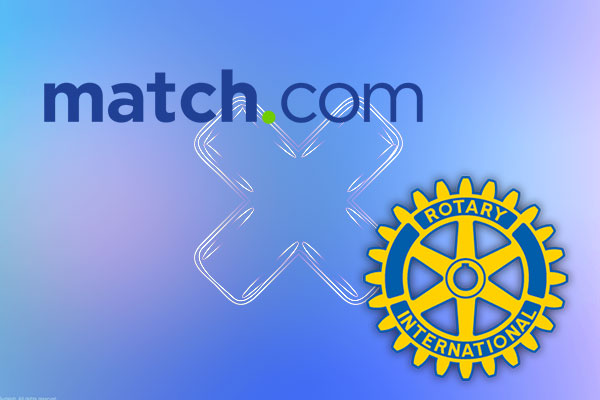 Society of Physician Entrepreneurs: Our organization is a cross between Match.com and Rotary.
Society of Physician Entrepreneurs: Our organization is a cross between Match.com and Rotary.
How do you protect your idea?
We don’t have ideas. The individual has an idea. We make them aware and they have to be smart about how they manage their intellectual property. You don’t give away the secret sauce. That’s their responsibility, but most folks don’t understand that, so we educate them, “Don’t do this, don’t do that. Should you sign this? Should you do that? How do you move this thing along so that mutual interests are protected?” The answer is we educate people. The one very small part of getting an idea to a patient is the intellectual property thing. We have to educate people about how to do it, “Don’t give away the secret sauce until you’re ready to.”
Open yourself an NDA and all that stuff. You mentioned that you had started a business, SoPE.
I’m an academic ENT surgeon. I’m doing my deal to publish or perish, create more research and get grants. The usual academic shtick. Several other people and I, within the university and one outside, created a device to optically detect cancer. It’s in the realm of bioengineering and a sub-segment of biophotonics, which means the interaction of light with matter. In this case, it’s the interaction of light with human tissue. Since I’m an Ear, Nose and Throat surgeon and I’ve done a lot of work in oral cancer, my interest was creating a device so when you come to see me and you had something in your mouth that you were worried about, we stick a device in your mouth. It’s like a Geiger counter for cancer instead of radioactivity. The device tells us without doing a biopsy on it. It’s called an Optical Biopsy. The idea is using physics, light and all that stuff. It tells us whether you have something to worry about or not. That experience of working with people with intellectual property, product development, spinning out a company, and finding the money, taught me that everybody I know has a great idea, but they have no idea what to do with it, including me. I have no clue how to do this. I’m an ENT doctor at the university.
Did you have to do the FDA thing as well?
Yes, we had to go through all the regulatory issues and all that business. Meanwhile, I’m trying to make a living being an academic doctor and go up the food chain. I’m saying, “This is complicated. It was basically OJT. The second thing I learned was that I don’t know what I’m doing and I’m sure a lot of other people don’t know. The third thing was no one was going to teach me how to do it in medical school, residency and as part of a medical association. I said, “That’s not right. We’re going to create something to teach people how to do this.” That’s why we created the Society of Physician Entrepreneurs. It was a gap. There was an analogy, a market gap. Meanwhile, everybody’s ignoring the doctor and the patient.
When you fast forward these days, all the chatter is about value-based care. The irony is we’re going to pay you to deliver value-based care. The dirty little secret is we’re not going to teach you how to do it, so that’s another stupid thing. I’m saying, “This doesn’t make sense.” That’s why I got involved with this thing. Then I got involved with GlobalMindED. It is a global nonprofit student education network. Our mission is to create a diverse talent network. It’s about equity, diversity, inclusion, the hidden curriculum, addressing unmet student needs, first-generation dropout rates, all that stuff. The four-year graduation rate for first-generation students at colleges is 11%.
The biggest problem in getting stuff done is picking the right people.
Were you a first-generation college or no?
I wasn’t but my dad was a pharmacy professor, so he went to school. All my uncles were immigrants. I was not a first-generation kid, but I saw these people and what was going on. That’s not right, so how does all this fit in with healthcare? A number of ways. First of all, I’m trying to get ideas to patients. In order to do that, you need people who know how to do it. I can’t rely on a handful of folks who go to MIT, it has to be at an entire population. In fact, we’re doing some projects with what I call Patient Entrepreneurs. Everyone has had a terrible experience.
There’s a lady here in town, Martha Carlow, whose husband was diagnosed at 44 with Parkinson’s. She got mad about it and she started digging into the gut biome.
There’s nothing more dangerous than an entrepreneur who makes it personal but doesn’t take it personally. That’s what drives these people. This is really hard, and you have to have that drive. What creates that drive is an emotional core.
Sometimes you sit down from a work-pass common sense level. The average person goes in and may have quit a long time ago. When you did your business for the optical, in anywhere in the process did you go, “I wonder if there’s a market for this?”
I didn’t know. I suspected there was a market for it because that’s what I did for a living. I’m one of the people that needed this technology. Just because you’re a doctor, if you think somebody needs it doesn’t mean somebody needs it. You have to go out and do the research and figure it out. There’s nothing new under the sun. In medicine, some guy in Germany invented what you think was new in 1847 or something. You have to go through all the drill and figuring out if you have the freedom to operate. Is there a product market fit? All that stuff. The fact is that you’re driven.
People say, “You’re about getting people to create businesses.” I’m not. Entrepreneurship, in my view, is not just about creating businesses. Unfortunately, that’s the way the entrepreneurship ecosystem and entrepreneurship education system work. It’s not just about creating a business. My view of entrepreneurship is the pursuit of opportunity with uncontrolled resources or an environment of uncertainty. The goal is to create user-defined value through the deployment of innovation. Find a solution, it does not have to be a company. There are a million different ways to create patient-defined value without creating a company.
I am not in the business of just teaching people how to create a company. Secondly, I am not in the business of making entrepreneurs. In other words, I can’t teach anybody anything. I’d done it for 45 years and that’s not a new idea. Galileo, Newton, smart people said it. The basic idea is what I call, “You awake the inner-preneur.” If you have what it takes inside to do this, you may not even realize this. Doctors are so used to being told they’re lousy business people, they start believing it and it’s not true.
 Society of Physician Entrepreneurs: Doctors are so used to being told they’re lousy business people, they start believing it and it’s not true.
Society of Physician Entrepreneurs: Doctors are so used to being told they’re lousy business people, they start believing it and it’s not true.
I think about the skill sets, and I was a pre-med track kid. In college, there was no economics, no business, no sales, and no marketing. It was biology, math, chemistry and a weird one-hour computer coursework in FORTRAN and COBOL. I think about the diverse needs and changes within the medical community. I had my own concerns about the medical community and what they’re going to do.
There are a lot of concerns but which concerns particularly do you have?
In the day, physicians would have a practice and they own a building, they built a business, whether they want to turn up but they had a business. They had had something of value and now they’re employees. I don’t know what they’re going to do for retirement.
Not too long ago, I was in a class in front of maybe 40 or 50 medical students, talking about physician entrepreneurship and their eyes are glazing over. I say, “How many of you want to go out and start your own private practice?” There was one hand. “Why?” Just to dig a little deeper, the reasons have to do with work-life balance. They have to do with lifestyle and a lot of it has to do with student debt. The average medical student graduates with $183,000 in student debt. That’s just in medical school, you’re not even in the residency here. Some are $300,000, $400,000, and some are less. That’s the average, and that’s if you don’t marry another indebted medical student. Typically, a lot of medical students marry other medical students for obvious reasons. Now, you’re stuck with twice. What does that mean? You don’t buy a house, you don’t get married and you don’t have kids.
There was an article talking about the fact that Millennials don’t buy houses as much as our generation. The main reason has to do with student debt. They’re risk averse and they went through the great procession. They didn’t want to do all that. We work in a neighborhood where everybody mostly lives in apartments, they don’t own houses. To the point of biomedical and clinical innovation, more and more people are working for big medicine and are corporatized. What is the impact of corporatization of American medicine on innovation? That’s my question. That may not be your question. Your question may be financial security and risk management. Are they putting enough money away for retirement?
I’m the end user. They go, “This is what I’m going to do and this is what I have.” I go like, “Do you have anything else?” I have my concerns, I was the failed pre-med student. I had a kid that worked for me that went off to be a surgeon. The thing I’m interested in, for you, is when you have those entrepreneurial physicians show up.
It goes back to the point of creating companies. There are many different kinds of physician entrepreneurs and different kinds of roles, some you alluded to. For example, someone who starts a private practice basically runs a small and medium enterprise business. You can be a technopreneur where you’re trying to get an idea or a gadget to the market. You can be an intropreneur, an employed physician trying to add user-defined value in your organization that, hopefully, is aligned. You could be a physician inventor or physician investor or service provider. You could do a whole lot of different things as a physician entrepreneur that has nothing to do with starting a company. The fact that more and more people are becoming employed physicians, does that create problems in terms of growing physician entrepreneurship? To the contrary, let’s assume people are going to go to work for Corporate America and corporate sick care. Those organizations need internal innovation more than ever. In order to do that, they have to have physician entrepreneurs.
In your recollection, in any of the medical school curriculum, is there anything about entrepreneurship?
No, that’s changing. Back in the day, when I went to the medical school, people couldn’t spell physician entrepreneurship. Through a number of interventions, some of which I hope what we’re doing made a difference and I don’t claim to be the greatest needle mover, but it’s part of a trend. As a result, more and more bio-entrepreneurship education programs have been created. I’ve been involved in creating several of them at the University of Colorado. We were an early adopter of this and we did inform other programs. Over time, lots of folks now are creating bio-entrepreneurship education programs in all different kinds of ways. Courses, certificates, degrees, online and face-to-face. They’re all over the world, this is a global problem, with the problem being an infinite demand for care with limited resources in every place in the world. The question is, “How do you manage that?” My answer is innovation.
With the adoption of data collection, machine learning and so on, are you seeing much interest or development in solutions based on data and machine learning?
 Society of Physician Entrepreneurs: Digital health is the use of information and communications technologies to exchange medical information.
Society of Physician Entrepreneurs: Digital health is the use of information and communications technologies to exchange medical information.
Absolutely, but it’s at the top of the Gartner Hype Cycle. I’m very involved in various things and education. That’s why I’m here. I work for a company called cliexa. I’m the Chief Medical Officer that is based in this building. They’re a digital health company that does patient-reported outcomes. Digital health is the use of information and communications technologies to exchange medical information. Digital health, artificial intelligence, machine learning and Blockchain, all the bright shiny objects are being converged in an attempt to demonstrate value. Have they? That’s another story.
Digital health incorporates a lot of different categories like telemedicine, remote sensing and artificial intelligence. Has digital health made a difference? Some would argue no, and some would argue it’s snake oil. Can you point to use cases where it has made a difference in quality, cost, user experience, patient-doctor experience? Yes, but it’s changing so quickly. The adoption and penetration of medical technologies take a very long time.
If you have an AI-based database and you see a particular outcome, do you think that regulatory agencies and the FDA are up to speed?
No, the FDA admits they’re not. It’s not my opinion, it’s their opinion. That’s the history of innovation. Entrepreneurs and innovators are leading indicators. Regulators and politicians are lagging indicators. It’s the history of the industrial revolution and all innovation. The FDA is struggling with whether and how to get their arms around digital health technology and regulating it. Examples are artificial intelligence, clinical decision support systems, telemedicine, electronic medical record interoperability, cybersecurity, and data security. They are trying to get their arms around all this. Incidentally, it’s not just the FDA. It’s the SCC or the FTC. It’s the consumer protection, it’s everywhere.
I don’t think they pay the regulators enough to attract the best and brightest.
I know several of these people and they are very dedicated public servants. We don’t pay them enough. Everybody’s jumping down their throats and telling them whatever they do is wrong again. The history of the FDA is about their mission to protect consumer safety. They’ve assumed this business of blocking innovation. You have to balance facilitating innovation with protecting the public safety. That has been it since the inception of the FDA, it still is. It’s just a question of politics, economics, drivers, money and all this stuff. Who wins? A supreme court nominee may make a big deal about administrative law. How do you feel about the FDA? It goes back to a friend of mine, we have a course in a biological partnership where we have a whole section on the FDA. It’s a very interesting story in history, how the FDA works, the political issues and all that. You keep an eye on this cabinet nominee because it will have an impact on the administrative law.
I get fascinated. The joy of doing the podcast is you’re deep in this one area. I get to pick up the covers and look underneath which I truly enjoy. For the folks that are going like, “How do I find your organization and reach out to you?” What’s the best way to find the organization?
The best way to do it is to go to our website, www.Sopenet.org. You’ll see a list of chapters around the world. I’m all over the internet, if you check out my LinkedIn, there are a zillion different ways you can get in touch with me.
I’m assuming that you’re an avid reader?
Yes.
The adoption and penetration of medical technologies take a very long time.
What’s the most recent or influential book that comes to mind?
I’ve been wrapped up in how do we win the fourth industrial revolution. The Fourth Industrial Revolution is a mental mindset that describes the evolution of industrial revolutions in the world. It’s basically what drives an economy in terms of an industrial economy. The first one was water, with water mills, steam and all that. The second one was electricity. It took 100 years from the discovery of electricity to it actually being transformative in the society.
In Tennessee, I believe in 1922, 15% had electricity until the TVA came in.
It’s like electric cars. It’s going to take a gazillion years for all that to happen. It’s going to happen but you’ve got to build the infrastructure. It’s like the guy who invented the TV, nobody even knows who he is. Just like the railroads, the network, NBC or CBS, before the television could make a difference. It’s the same thing. With computers, it’s the same deal. In the first industrial revolution, it’s water. In the second industrial revolution, it’s electricity. In the third industrial revolution, it’s the computers. In the fourth industrial revolution, it’s converging intelligence. It means big data, cloud storage, mobile access, Nanomaterials, precision medicine, robotics. It’s the collision of all of these technologies. Just like each of the previous things that drove the revolution, who could ever predict the impact of the Macintosh and the personal computer on society? Nobody. That was fifteen, twenty years ago. It wasn’t that long ago.
I can still remember sitting in a meeting in a Merrill Lynch group where the guy that ran the division said, “The internet is a fad.”
You and I go to the computer in the room and have it reserved FORTRAN time, the type one cards and all that. Who would have predicted it? It’s the same deal with the fourth industrial revolution. I’m getting an answer to your question, which is Frankenstein. Frankenstein was published in 1818 by Mary Shelley. Now, we’re celebrating 200 years of the publication of Frankenstein. It speaks to the issue of science and society. The steam engine was invented in 1775. We’re talking 25, 30 years later, people are beginning to see the industrialization of rural England. 93% of people in colonial America at the time of the revolution lived on a farm.
Do you know what percentage of people now live on a farm and produce ten times the amount of food for the rest of the world? 1% of Americans live on a farm. It’s a reflection of how this changes society. The question is how will we win the fourth industrial revolution? It gets to your point of how you’re worried about doctors. How do we train doctors to win the fourth industrial revolution? How do we train your kids to win the fourth industrial revolution?
Your dad worked, other than the military, one job.
I’ve worked one job. I’m a dinosaur. I went from elementary school into finishing my residency in a long time. I got a job as an Academic Assistant Professor and I stayed in the same place for 40 years. It’s not how the world is nowadays. How do we provide the knowledge, skills, and abilities for students to win the fourth industrial road?
If you’re looking back over your career, did you have a failure that perhaps you’ve experienced that helped you progress down the road?
The forces of change encounter enormous resistance.
I’ve had a bunch of failures. I started a digital health company that failed. As someone who is trying to change a system and working at the University of Colorado, a state-owned institution, I work in the three of the most change-resistant industries in the United States, higher education, sick care and government. Every time I try to do something, I bump up against a lot of resistance. I have a litany of failures. Have I put some points on the board? I’m not going to get into the baseball hall of fame by my batting average but I’ve accomplished enough and I’ve made enough of a personal difference. That motivates me to keep doing it because I understand the forces of change encounter enormous resistance. That’s the way the world is.
Looking at the allocation of time or initiative, what’s helped you the most?
You have to make priorities and follow what matters most, spending time on what matters most. Decide what that is and prioritize your time to do it.
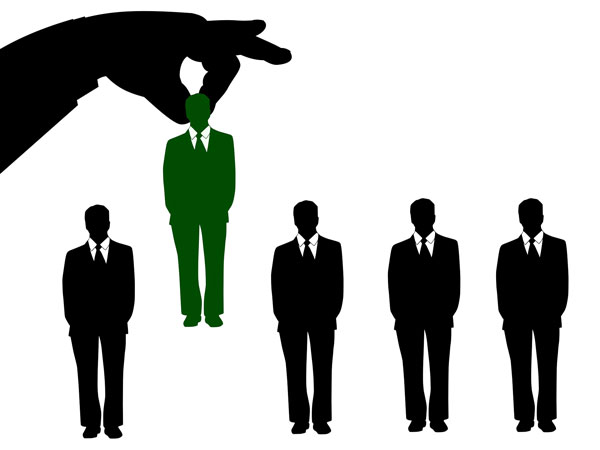 Society of Physician Entrepreneurs: You have to make priorities and follow and spend time on what matters most.
Society of Physician Entrepreneurs: You have to make priorities and follow and spend time on what matters most.
If somebody was to say that you have an unusual habit or something that’s out of the ordinary that’s helped you, what would that be?
I developed a habit of writing every day. I used to be terrified of writing. It’s another long story and it reveals some psychopathology. I started doing it and now I write every day. I would say that in terms of this modern world and communication, it’s a skill that people should hone. Even writing 500 words a day, you don’t have to publish it, just write it. Eventually, you’ll publish it. That’s probably the thing that I’ve benefited the most from.
What do you think is the biggest misconceptions that folks have about you?
That doctors are lousy business people. They’re not. I run around with people who are good at this and my concern is doctors believed it. They get told all the time and say, “I have enough of that stuff.”
Looking back over the past few years, what should you have said no to?
The people that I work with. The biggest problem in getting this stuff done is picking the right people. You could waste a lot of time with folks that raise their hand and don’t show up. They don’t honor their commitments, don’t know what they’re doing, aren’t willing to learn, and don’t look at their blind spots. It comes down to working with the right folks.
If you were to reach back over time to a quote that you found meaningful and you use frequently, what would that be?
My favorite quote is the one by Machiavelli in the 1500s. It speaks to this notion of the advice to the Prince and what it’s going to take to change. I can’t state it as eloquently as he could. It speaks to the vested interests that was the change and how much effort it takes to make meaningful change. It is hard, particularly when you’re talking about 20% of the GDP, sick care, higher education or government and these huge wicked problems, it takes a lot of effort.
I appreciate you taking the time.
It’s my pleasure.
About Arlen Meyers
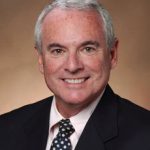
“Our mission is to help our members get their ideas to patients, and we do that by providing education, resources and networks…what we do is connect dots, so our members can create things.”
Dr. Meyers is a retired professor of otolaryngology, dentistry, and engineering at the University of Colorado Anschutz Medical campus and President and CEO of SoPE. He has founded several medical device companies and is also the cofounder of a medical tourism company. His primary research centers around biomedical and health innovation and entrepreneurship and life science technology commercialization. He consults for and speaks to companies, governments, colleges and universities around the world who need expertise and contacts in the areas of bio entrepreneurship, bioscience, healthcare, healthcare IT, medical tourism — nationally and internationally, new product development, product design, and financing new ventures. Dr. Meyers is a Fulbright Scholar and a former Harvard-Macy Fellow. A devoted and prolific member of the SoPE community, Dr. Meyers also leads the Colorado Chapter of SoPE.
Links Mentioned:
- Society of Physicians Entrepreneurs
- Colorado Business Roundtable
- Match.com
- GlobalMindED
- cliexa
- www.Sopenet.org
- Arlen Meyer’s LinkedIn
- Frankenstein
- The Fourth Industrial Revolution
Love the show? Subscribe, rate, review, and share!
Join the Business Leaders Podcast Community today:
- businessleaderspodcast.com
- Business Leaders Facebook
- Business Leaders Twitter
- Business Leader LinkedIn
- Business Leaders YouTube
The post The Society of Physician Entrepreneurs with Arlen Meyers appeared first on My podcast website.